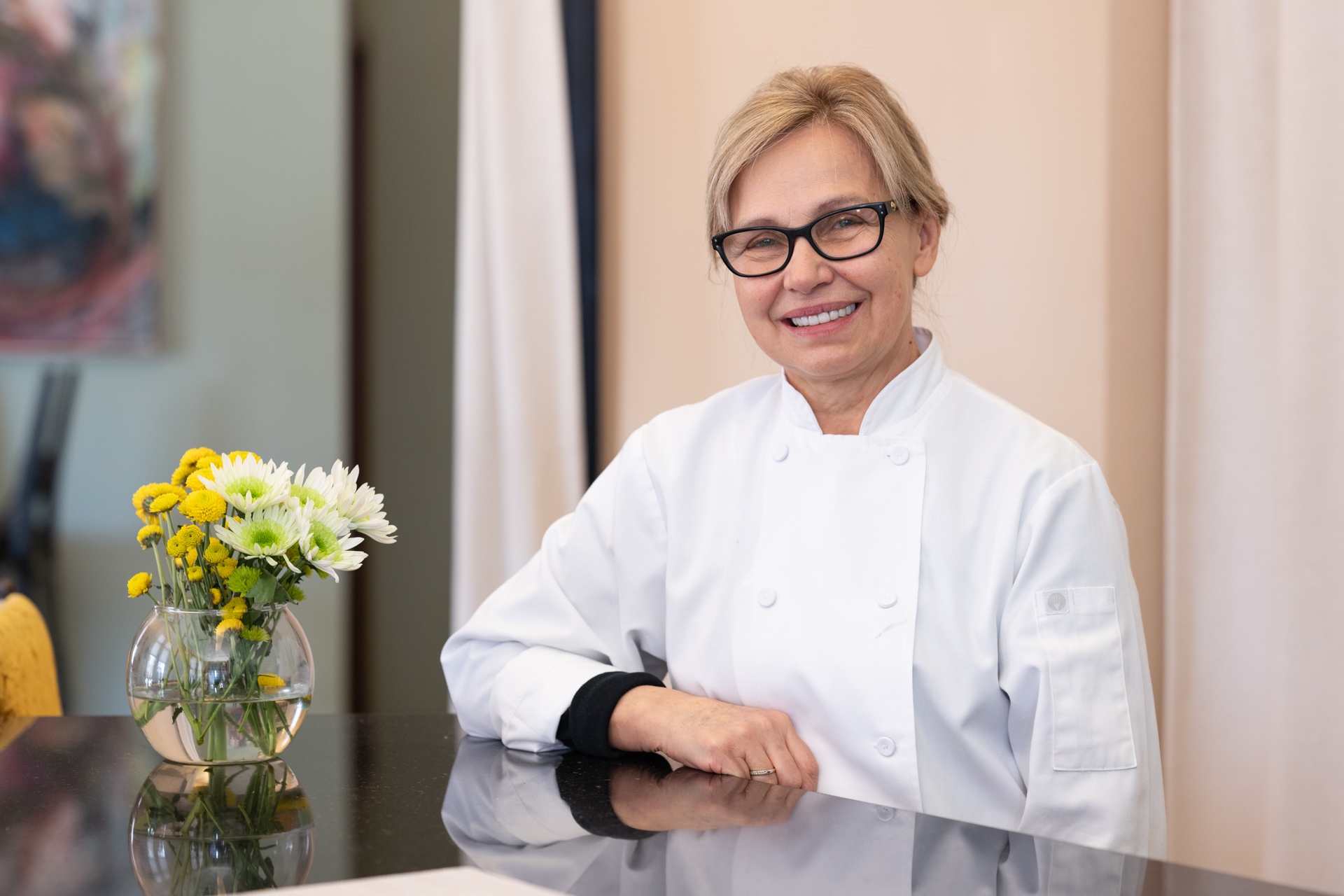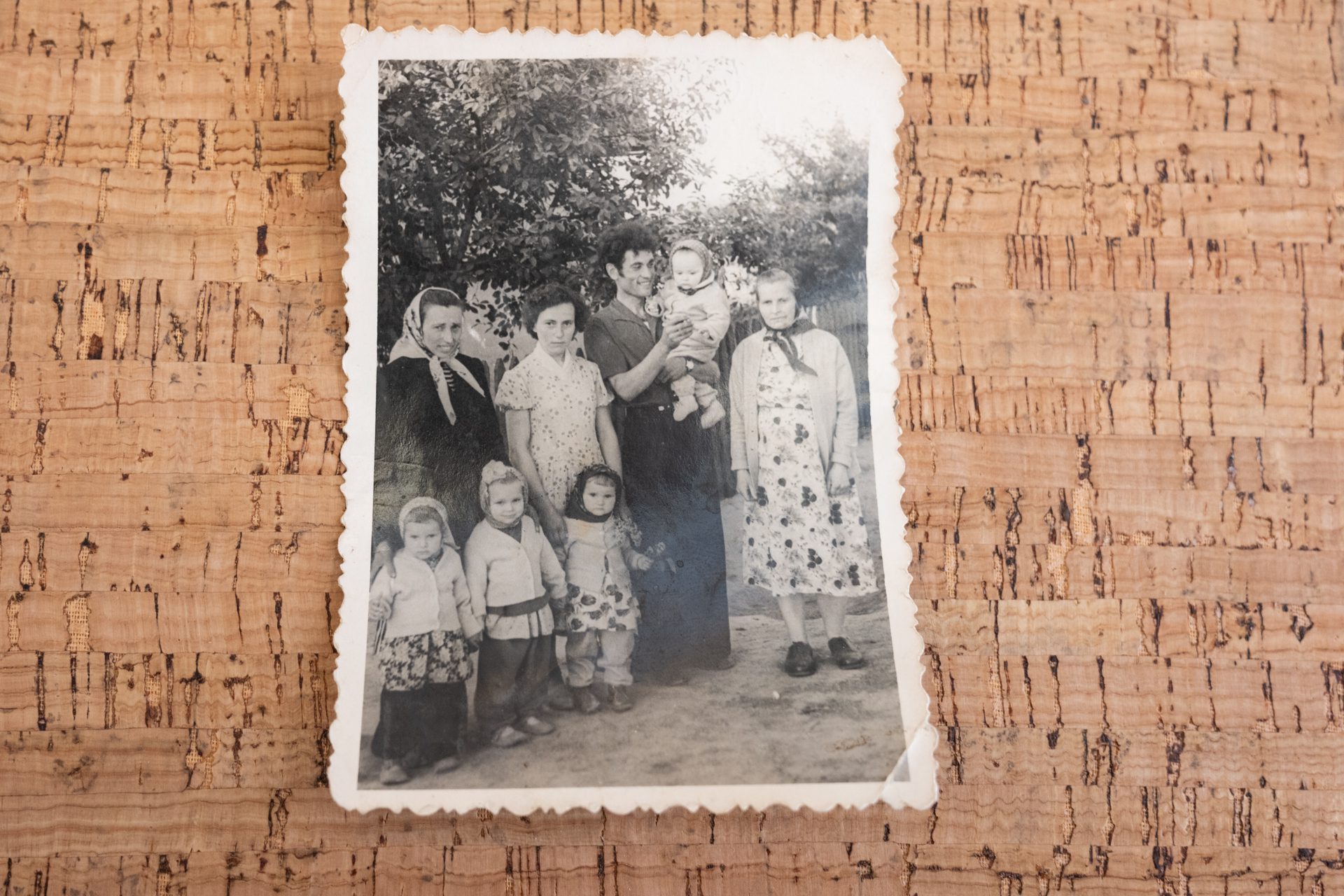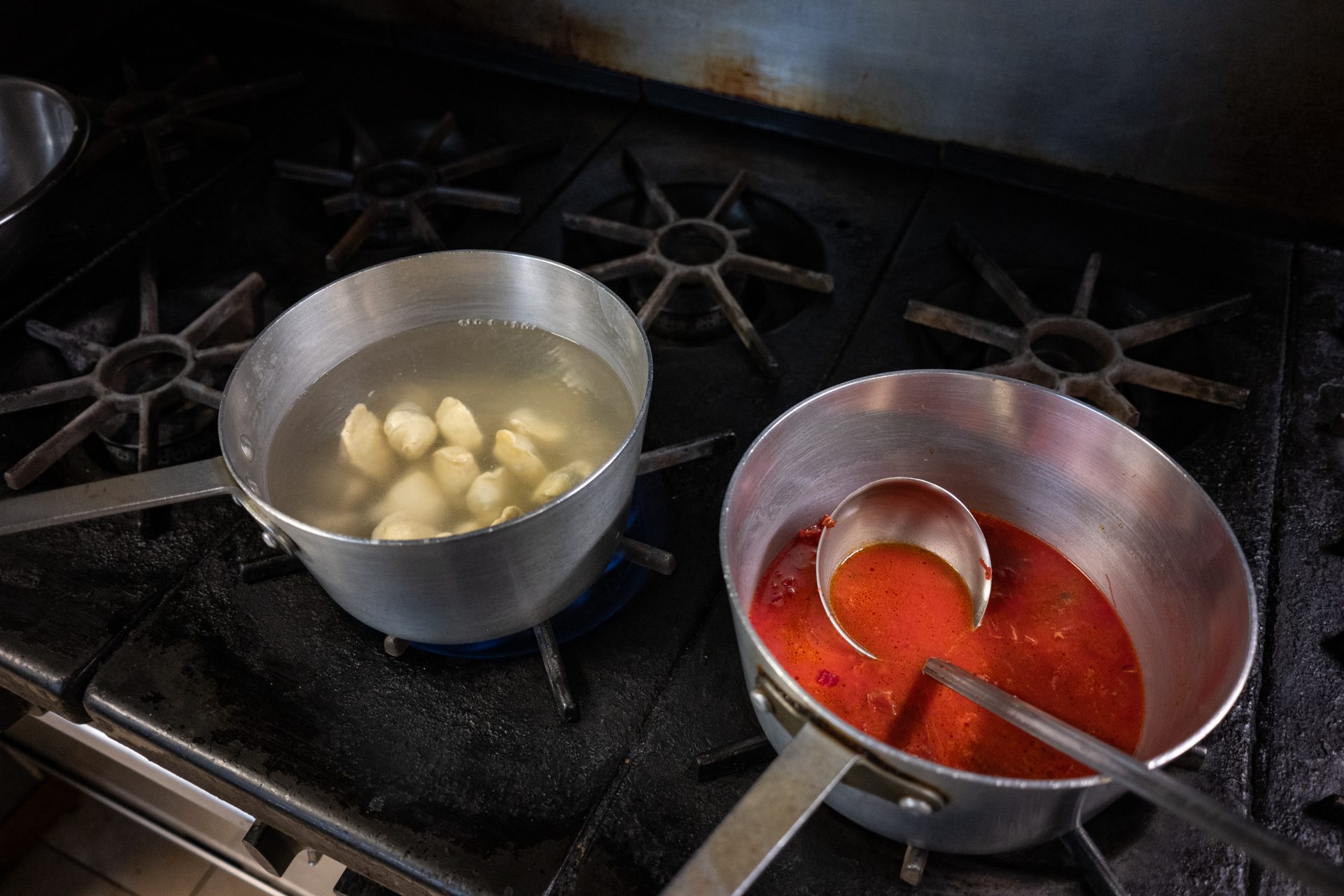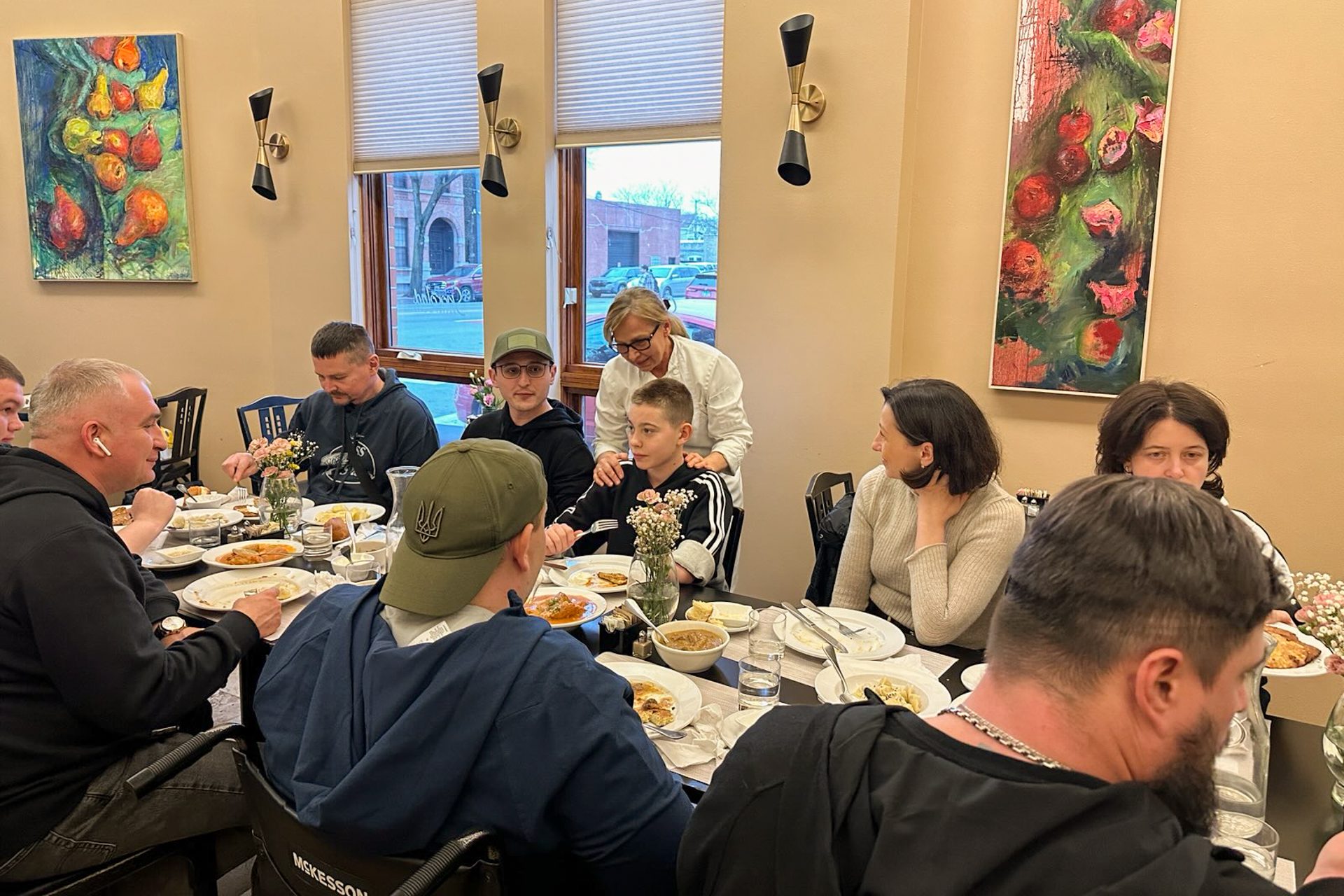 Max Herman/Borderless Magazine
Max Herman/Borderless MagazineAfter leaving Ukraine with little more than faith and determination, Halyana Fedus built a life serving food and hope to her Chicago community.
On a quiet street corner in the Ukrainian Village sits Shokolad Cafe, a cozy Ukrainian eatery that serves more than just food. The cafe is known for its hearty varenyky, steaming borscht, crispy paninis, and delicate crêpes. Owner Halyana Fedus’s cafe and journey embody resilience, hope and the American dream.
“When I cook or bake… all I think about is how to make people happy through my baking and cooking art,” Fedus said.
Amid ongoing war and the arrival of thousands of Ukrainians, Fedus recalls her journey, fleeing poverty in Ukraine to becoming a business owner in Chicago.
News that puts power under the spotlight and communities at the center.
Sign up for our free newsletter and get updates twice a week.
A Childhood Shaped by Struggle
Life was far from easy growing up in Ternopil, a small city in western Ukraine.
We were so poor. I struggled to make ends meet with two young daughters and no resources.
I could only spend 60 cents a day to feed my family for a month. It was milk, bread and butter.
One Sunday, my daughters, then six and three, saw a carnival in town. They wanted to ride the carousel, but I had no money to give them.
I felt so sad. In that moment of despair, a woman approached me. Drawn to the beautiful peonies blooming in my yard, she asked if she could buy flowers. I had never sold them before, but she insisted and gave me money for them. It felt like a sign from God.

I used that money to take my daughters to the carnival. It was a glimpse of joy during a difficult time—one that affirmed my faith in Jesus and gave me the strength to keep going.
Searching for Purpose in the U.S.
In 1993, I received an unexpected call from a friend in Poland.
She told me about a family in the U.S. looking for a babysitter. They needed someone they could trust.
With no other options and a desperate hope for a better life, I accepted the opportunity and flew to the U.S. I left my two daughters, ages 13 and 10, with my husband in Ternopil.
Life in America was grueling. I cried every day on the bus, praying to God.
From 6 a.m. to 10 p.m. every day, I worked two jobs, cleaning houses and waitressing, where I made $6 an hour.
I missed my family so much. Every week, I wrote my daughters letters that were five to six pages long, explaining my daily routines and how much I missed them. I would also call them twice a week. It cost me about $2.50 per minute for international calls.
I returned to Ukraine in 1994. The following year, after winning a green card lottery, my family and I immigrated to the U.S.
For years, I had struggled with the purpose behind why I took my family to the U.S. I feared my children could lose their Ukrainian identity, and I thought that they would never want to return to Ukraine because the U.S. was their new home.
Read More of Our Coverage
After six years, I could afford a solo trip back home to Ukraine. This trip reminded me of why I came to the U.S. and brought my family together.
During a short trip to Ukraine in 2001, I was waiting to meet a friend at a shopping center and was struck by the economic hardships I witnessed. The chefs I knew were unemployed and selling pastries they baked in their home kitchen at the shopping center. This made me realize that if I didn’t get the opportunity to travel to the U.S., I wouldn’t be able to help my family and other children and families in need.
A Dream Takes Root
Despite maintaining two jobs and working long hours, I never lost faith. I learned English while working at a French restaurant, where the owner took a chance on me. I promised him I’d speak English in three months if he hired me. He believed in me, and I kept my word.
In 1998, a close friend introduced me to the catering business, where I worked for a couple of years. The people I met were so kind. They taught me so much about how to be a chef and how to run a business and supported me when I needed it most.
There, I honed my skills and built the confidence to open my own pastry shop. With support from my community and loans from a Ukrainian bank, Shokolad Cafe was born.
I wanted my shop to be in the heart of the Ukrainian Village, where I could exhibit a part of Ukrainian culture through my colorful dishes and pastries.
Opening the business was also a way to support my son and save money for college.
Shokolad Cafe began as a modest venture, introducing Chicagoans to European paninis and salads, but my heart always wanted to share my Ukrainian heritage. I wanted people to try our varenyky (dumplings) and borscht.

Slowly, the cafe became a hub for Ukrainian cuisine, attracting loyal customers who come every weekend for authentic dishes.
One of my proudest moments was seeing my borscht listed among Chicago’s top 33 soups by the Chicago Tribune. We use ingredients from Ukraine, like flour and spices, to keep the flavors authentic.
A Space for Community—and Resistance
On February 23, 2022, I had an unsettling feeling. It was Russia’s Fatherland Day—and my husband’s birthday. That evening, we celebrated with dinner, but before falling asleep, the phone rang. One call after another with the same news: Russia invaded Ukraine.
The next morning, a long line of people waited outside the cafe. Everyone told me they wanted to support Ukraine but didn’t know where to go.
I have always been happy and thankful to be in the U.S. because this country has given me a lot, and the support from Americans has been amazing.
I have deepened my connection to my roots with the ongoing war in Ukraine. I started contacting families, friends, and relatives to spot people in need and connect with them.

The success of my business has allowed me to give back to my homeland. I send money home whenever I can, and the money has been spent on buying clothes, shoes and other necessities for children and families in need.
I could never have done that if I had stayed there.
Unlike the U.S., it’s far more difficult in Ukraine to have opportunities and succeed unless you have the needed connections. If you work hard in this country, you can survive and thrive.
For me, Shokolad Cafe is more than a restaurant—it’s my unwavering commitment to my community.
For those who visit Shokolad Cafe, every bite is a taste of my journey from despair to hope.
This story was produced using Borderless Magazine’s collaborative as-told-to method. To learn how we make stories like these, check out our as-told-to visual explainer.
Fatema Hosseini is a Roy W. Howard Investigative Reporting fellow covering immigrant communities for Borderless Magazine. Send her an email at [email protected].


